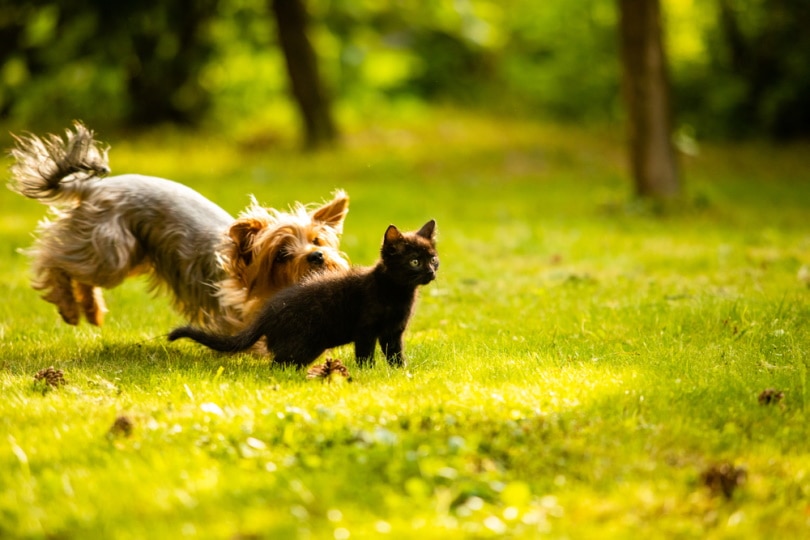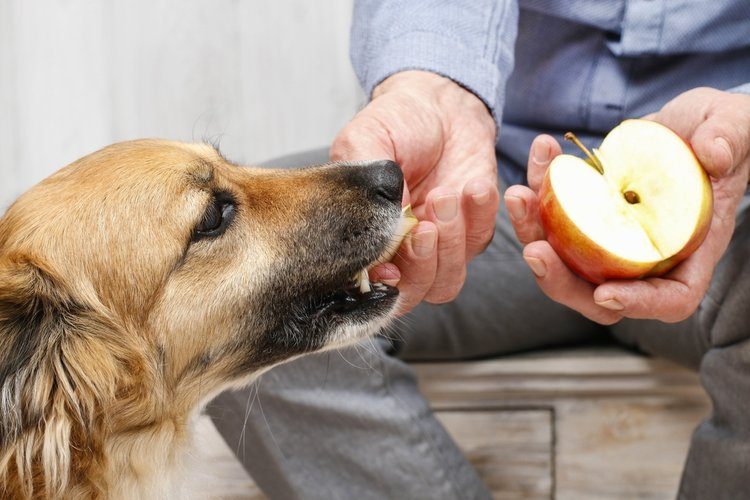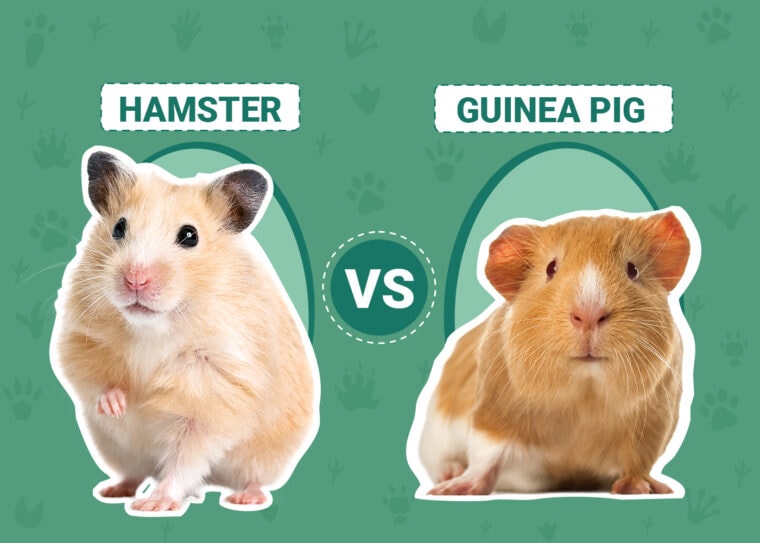
Click to Skip Ahead
Are you looking to add a new furry friend to your family but are caught up in the decision of being unable to choose between a hamster and a guinea pig? Both little rodents can be excellent companions, but before going for one of them, you should consider which aligns better with you, your lifestyle, and your personality.
Read on as we thoroughly explain everything that you need to know about hamsters and guinea pigs, from their appearance to grooming needs and health, so you can determine which pet is right for you.
Visual Differences

At a Glance
Hamster Overview

Hamsters are adorable little rodents kept as pets in homes throughout the world. Currently, there are 24 known hamster species, all of which belong to the Cricetidae family, though each species is unique in their own way.
Hamsters are curious scouts that love to explore everything around them. They’re also nocturnal animals, meaning they’re mainly active at night, and that’s when you can catch them doing all sorts of funny stuff.
Personality & Character
Most hamsters are gentle, curious, and docile. These nocturnal animals love to sleep during the day and play and exercise at night. They are social and can easily bond with their human companions, though they might take a while to adapt to their new environment and get over being shy.
Hamsters are not too fond of other pets, so keep that in mind if you live in a multi-pet household. They are also timid, so be sure to prevent loud noises and other things that could startle them.
Housing
Due to their size, hamsters typically don’t require large housing, so getting a wire cage or a terrarium will be enough to keep your pet happy. Since hamsters love playing during the night and sleeping during the day, their environment should also contain an exercise wheel, toys, and a nesting box.
Health & Care
Hamsters are generally healthy animals that can live up to 4 years, depending on their species. However, these little rodents are prone to several illnesses, including congestive heart failure and kidney disease, which could be fatal. It’s also possible for hamsters to experience other health problems, such as diarrhea and dehydration, as they’re susceptible to bacteria.
If you’re considering getting a pet hamster, you should know that hamsters have moderate grooming needs and require regular brushing and dental care.
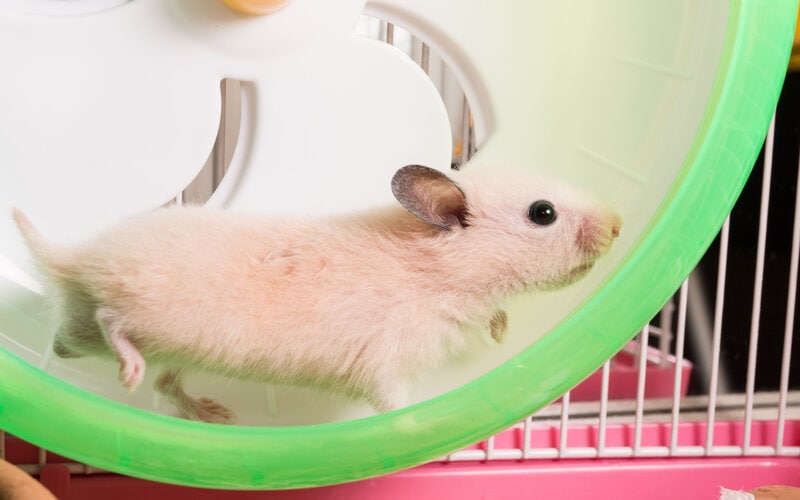
Suitable For:
Generally speaking, hamsters are suitable for anyone who wants a small pet that’s friendly and easy to care for. They can easily fit in with singles, pairs, families with kids, and people of all profiles.
However, you should keep in mind that hamsters are nocturnal animals, meaning they’re not for light sleepers. Otherwise, you might wake up multiple times every night to the sound of your hamster spinning the exercise wheel.
Also, while these little rodents can be excellent pets for kids, they may also disturb children during the night, which is something to keep in mind.
Guinea Pig Overview
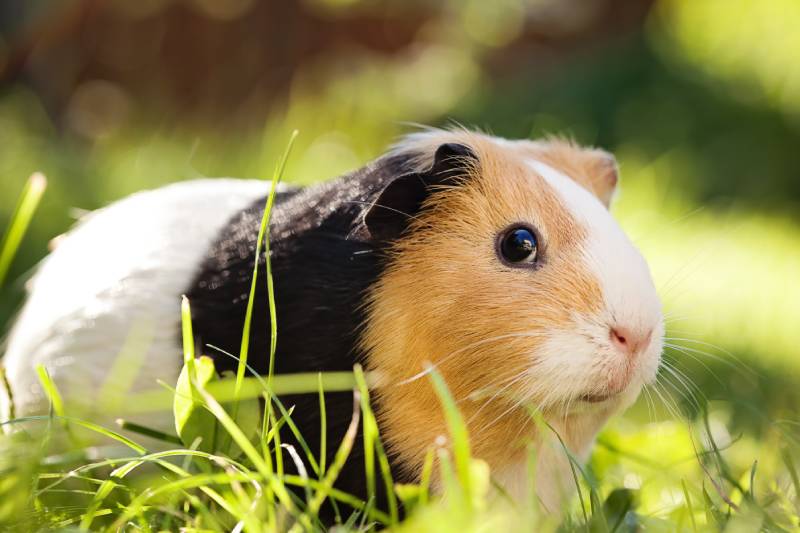
Guinea pigs, otherwise known as cavies, are large rodents kept as pets that belong to the Caviidae family. Unlike hamsters, which mainly like to hang out at night, guinea pigs are diurnal animals, meaning they’re mainly active during the day and sleep at night.
There are many different guinea pig varieties that you can keep as pets, but bear in mind that some species can be active for over 20 hours a day, so you’ll need to be ready for the commitment!
Personality & Character
Guinea pigs are extremely smart and highly social, which is why they love to spend their time around humans. They are also adaptable and can adjust to living and even being friends with other animals if properly socialized from a young age.
These little creatures love company and can often get lonely, so unless you have plenty of time to keep them occupied, it’s best to get guinea pigs in pairs and keep them happy and entertained through companionship.
They are loving animals that enjoy play and exercise, and with the right company, guinea pigs can thrive and be excellent, interesting pets.
Housing
Guinea pigs are larger than hamsters, which means they’ll take up more space in your home. Your guinea pig will need an area big enough to roam around and have enough room for water, food, sleeping, and exercising.
The size of the cage matters, so it’s best to go for one as big as your free space allows for. That way, you can add ramps, play and hide areas, toys, and other features that your guinea pig will appreciate.
Health & Care
Guinea pigs are usually healthy animals, but you should still monitor them to ensure that they’re eating well, drinking enough, and moving around easily. Health issues that they can experience include:
They usually need minimal grooming, which consists of regular nail trimming, coat brushing, bathing, and dental care.

Suitable For:
Guinea pigs have loving personalities and love to socialize, which is why they can make excellent pets for anyone from singles to families with kids. They are friendlier than hamsters, and they’re more active during the day, which is why they can bond better with most people and fit more easily into their schedules.
Guinea pigs also enjoy companionship from other animals, so they’re suitable for people living in multi-pet households.
The Differences and Similarities Between Hamsters and Guinea Pigs
| Characteristics | Hamsters | Guinea Pigs |
| Activity classification: | Nocturnal | Diurnal |
| Friendliness toward humans: | Friendly | Extremely friendly |
| Friendliness toward other animals: | Not that friendly | Quite friendly |
| Diet: | Omnivorous | Omnivorous |
| Size: | Small | Large |
| Life expectancy: | Low | High |
Which Pet Is Right for You?
Both hamsters and guinea pigs can make good pets; it all depends on which one fits into your lifestyle the best.
If you’re a night owl who likes to be awake during the night or someone who can sleep through the night even with noise, hamsters might be a good option for you. If you want a pet that’s active during the day, guinea pigs might be more suitable.
Keep in mind that guinea pigs are generally more social than hamsters when around people and other pets, and they can get along with kids slightly better.
Featured Image Credit: (L) Kim Green, Unsplash | (R) Amjith S, Unsplash


